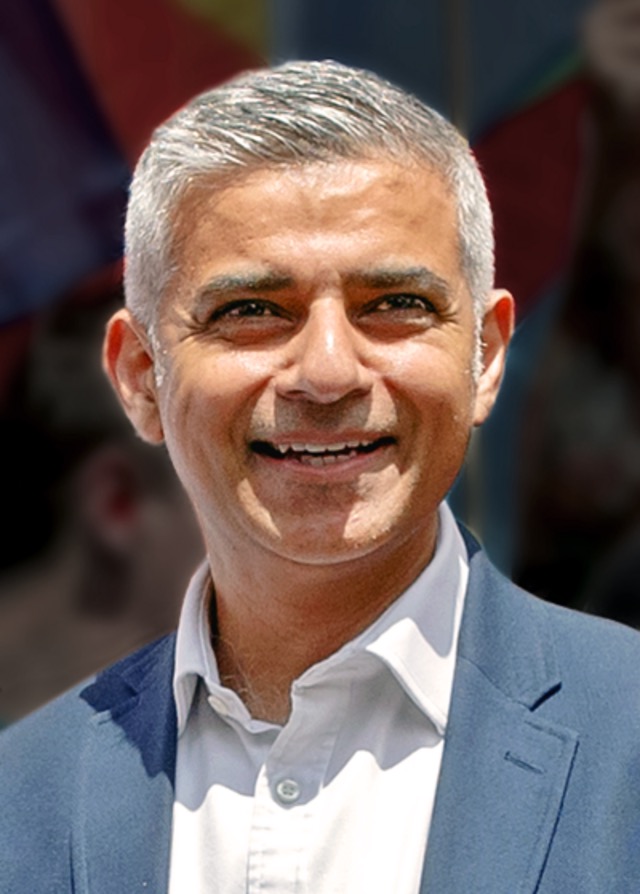Sadiq Khan’s plans to hike the Congestion Charge to £18 and scrap electric vehicle exemptions could cause car club operators to abandon EVs in favour of cheaper petrol and diesel models, industry leaders have warned.
Car sharing companies face an additional £1 million annually in costs from December 2025, when the London Mayor removes the Cleaner Vehicle Discount for electric vehicles, forcing thousands of zero-emission cars to pay the daily fee for the first time.
James Taylor, general manager of Zipcar UK, told MPs at a Transport Committee meeting today that electric vehicles already incur approximately £6,000 in additional annual costs compared to petrol alternatives before factoring in the new charges.
“I’d Be Foolish to Purchase an EV”
If nothing changes, I’d be foolish to purchase an EV,” Taylor warned committee members, outlining the stark financial reality facing car club operators.
The testimony revealed that London’s car club sector, which predominantly operates electric models and serves 328,539 active users, faces an existential threat from the charging changes set to begin on Christmas Day 2025.
From that date, all electric vehicles will lose their 100 per cent discount and must pay £15 daily to enter the congestion zone. Just one week later, on 2 January 2026, the charge rises to £18 for all vehicles – a 20 per cent increase that compounds the financial burden.
Research presented to MPs showed the proportion of electric vehicles in UK car club fleets has already dropped from 35 per cent in 2023 to 30 per cent in 2024, with operators warning this decline could accelerate dramatically.
Operators Face “Impossible Choice”
During questioning from MPs, Taylor acknowledged that Zipcar’s EV growth had already stalled and warned the company might need to reduce its electric fleet further when existing vehicles require replacement.
“When we come to the point of our current EVs’ content of their life will have to make a call around whether we want to purchase new EVs or purchase ICE vehicles instead,” he testified.
Industry executives revealed they face an impossible choice between absorbing unsustainable costs or transferring expenses to customers, potentially making car clubs unaffordable for many Londoners.
Several operators confirmed to the committee they would likely purchase internal combustion engine vehicles rather than electric alternatives when current EVs reach replacement age – directly contradicting London’s environmental objectives.
Million-Pound Annual Impact
One car club operator calculated that the first two policy changes alone would cost approximately £878,000 on average over five years – comprising £305,000 for the Congestion Charge rise and £573,000 for losing the EV discount.
Once the electric vehicle discount drops to just 12.5 per cent in March 2030, annual costs are forecast to exceed £1 million per year for larger operators.
The financial pressures extend beyond the Congestion Charge, with operators citing multiple cost barriers including higher insurance premiums, maintenance costs, and charging infrastructure challenges that make electric vehicle operation increasingly unviable.
“Utterly Baffling” Policy Criticised
Industry representatives united in their criticism during consultations with Transport for London. Richard Dilks, chief executive of CoMoUK, warned that treating shared vehicles identically to private cars would be “utterly baffling” given each car club vehicle removes 31 private cars from London’s roads.
Around 37 per cent of the car club fleet in London are EVs, compared to just 5 per cent of all cars in London,” Dilks noted. Operators have been leading the way in the transition to clean car travel, but now face being penalised.
Marc Roberts from Hiyacar cautioned that the changes risk “pushing already strained operators past the tipping point,” whilst Dan Gursel of Enterprise Car Club emphasised how car clubs help reduce emissions and ease urban congestion.
Germany Comparison Highlights UK Failures
Taylor stressed that without policy recognition of car sharing’s benefits, the UK would continue lagging behind Germany, which hosts 200 operators compared to Britain’s four major providers.
The Zipcar boss called for car clubs to be treated differently from private vehicles in congestion charging proposals, arguing they provide proven congestion-reducing benefits by offering vehicles only when needed.
“Car clubs also help to remove older, more polluting private vehicles from London’s roads,” Taylor explained, warning that current proposals send “the wrong message at the worst possible time.”
TfL Defends Changes
A Transport for London spokesperson defended the proposals, stating: “The Congestion Charge has been in place since its introduction in 2003 to manage traffic and congestion in the central one per cent of London during the busiest times of day.
They warned that without the changes, an estimated additional 2,200 vehicles would enter the zone on an average weekday, undermining the scheme’s effectiveness.
The Mayor has previously argued that the purpose of the Congestion Charge is to reduce congestion, noting that even his predecessor Boris Johnson “did not think that it was right to give an indefinite exemption to vehicles.
However, critics including Labour’s own London Assembly Transport spokesperson Elly Baker have called for TfL to maintain the 100 per cent discount for car club EVs, arguing the authority should be “making it as easy as possible to promote the growth of car clubs.
Follow for more updates on Britannia Daily
Image Credit: Sadiq Khan (Brighton, Sept 2009) — photo by Steve Punter, CC BY-SA 2.0



